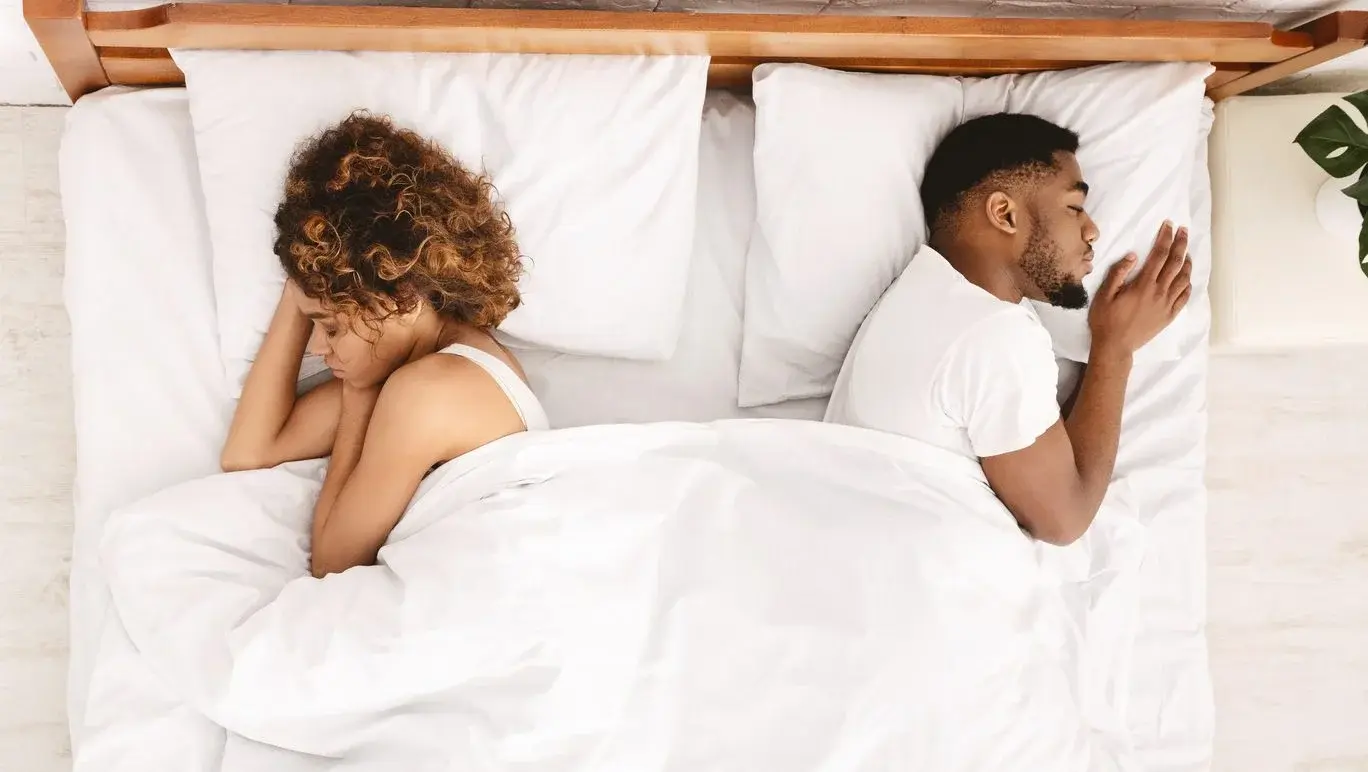Should you consider sleep divorce?

Is sleep divorce as negative as it sounds? The term “sleep divorce" isn’t something you’ll find in medical textbooks, but something you may have heard from social media. It’s a dramatic-sounding phrase to describe couples choosing to sleep in separate beds or rooms for better rest.
While the term carries the emotional weight of "divorce" to highlight the significance of separate sleeping arrangements, it shouldn’t imply a relationship breakdown. In fact, it involves couples committed to each other and committed to getting good sleep. Sleep clinicians and psychologists often prefer to use terms like "sleep separation" or "alternative sleep arrangements" to avoid the negative and permanent connotations of a "divorce". Sleeping separately can be an option for couples if there are difficulties sleeping together that can’t be fixed, there’s the space to sleep separately, and both parties value staying as a couple despite the sleeping challenges.
Why do some couples choose to sleep divorce?
It arises out of difficulty sleeping in the same bed or the same room despite wanting to stay in a romantic relationship. According to the American Academy of Sleep Science, over a third of Americans opt for a sleep divorce. The common reasons why some couples have trouble sleeping together include; snoring, light sleeping, restlessness, insomnia, sleep apnoea, mismatched sleep schedules or body clocks, shift work, different environmental preferences (e.g. temperature, noise) and young children or pets disrupting sleep.
Are there benefits to a sleep divorce?
Considering that some people choose to sleep separately to reduce sleep interruptions, there are several potential benefits. These include:
- Improved sleep quality: By avoiding disruptions caused by a bed partner, about 53% of people who have tried a sleep divorce report that their sleep quality increased after sleeping alone. Plus, objective measures (like EEGs) confirm this.
- Increased time asleep: Similarly, those who stick with a sleep divorce over time report that they sleep an average of 37 minutes more each night while sleeping separately.
- Improved relationship: If sleeping separately improves a couples’ sleep, it may also improve their relationship as a result. When both members of a couple fall short on sleep, they may treat each other with more hostility.
- Reduced mild anxiety: This has been seen especially in those people with insomnia. Sleeping alone can ease worry and concerns about potentially not getting enough sleep.
- Better relationship satisfaction: Poor sleep has been linked to relationship strain; better sleep may enhance intimacy and emotional connection. Well-rested couples may feel more emotionally and physically connected.
Are there downsides to sleep divorce?
- Feelings of loneliness or reduced comfort: This may be experienced by some people, especially those who highly value the close physical contact of sleeping with someone else.
- Not always feasible: This arrangement requires a higher socio-economic bracket as extra space is needed (two beds or at least an extra bedroom), which may not be feasible for those without the financial resources for this extra space.
- Social stigma: There is definitely a degree of social stigma around separate sleeping arrangements.
- Reduced intimacy: There may be a possible reduction in spontaneous intimacy, but not necessarily a decline in sexual activity.
Other ways to improve sleep with a partner
There are alternatives to couples sleeping separately. These include wearing eye masks, using good quality ear plugs, and investigating the potential benefits of background white noise. Persistent sleep issues should be discussed with a health professional to rule out underlying disorders. If there is significant insomnia, snoring or anxiety around sleep loss, then there are treatments and professionals available to help improve these symptoms. Sleeping separately may not be required after all once these things have been treated.
The bottom line
A key factor is that both people in the relationship need to be comfortable with the idea of staying in a committed relationship even though they’re sleeping apart. Open, clear and supportive communication is key. For some people it may signal a troubled relationship, while others are very comfortable with it. It’s important for the couple to be on the same page. The other essential thing to consider is ensuring that the reasons for not sleeping well together are assessed and explored by a health professional with sleep expertise.
Related reads:
- Struggling with sleep? 10 tips to fix your sleep schedule
- Why is sleep important and what are the benefits?
- What is the healthiest sleeping position?
Reviewed by Healthylife Advisory Board August 2025
This article is for informational purposes only and does not provide medical advice, diagnosis, or treatment. Any information published on this website or by this brand is not intended as a substitute for medical advice. If you have any concerns or questions about your health you should consult with a health professional.
